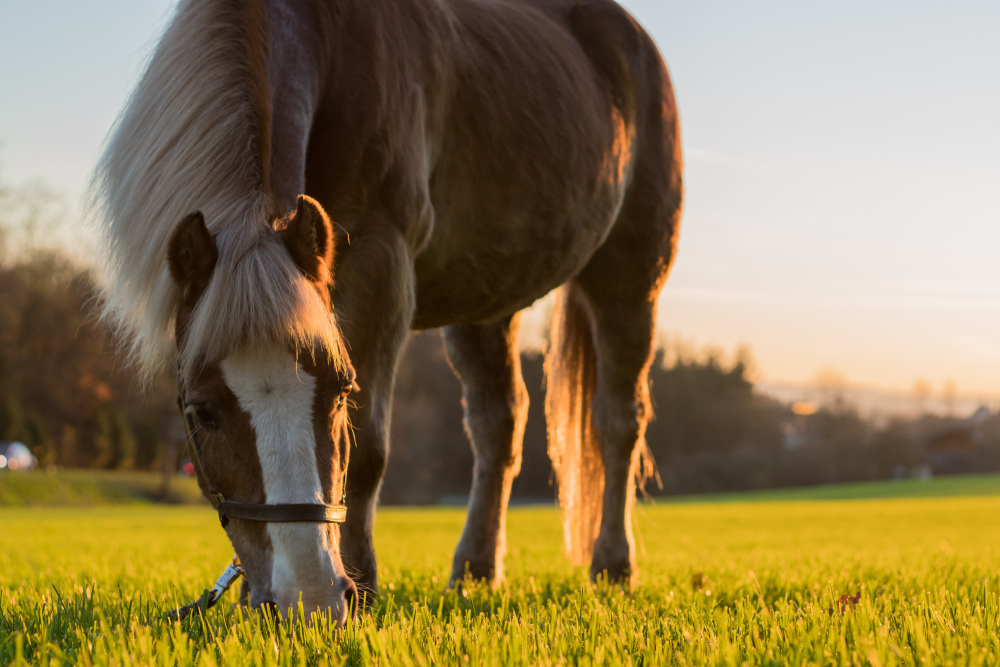No products in the basket.
Horsecare, Seasonal Advice
Avoiding Equine Ailments This Summer
Summer is a welcome time of year for people with horses; good weather (mostly!), longer daylight hours, less time mucking out and more time riding. However, it does bring with it some horse management challenges. Here are a few tips to help you avoid equine ailments, and get the most from the summer months with your horse.
Keep bugs at bay
Warm weather brings with it some unwelcome visitors such as flies, midges and horse flies. At best they are annoying, but at worst they can cause some real discomfort for your horse – especially if they are particularly sensitive or suffer from sweet itch. To help deter them;
- Ensure your horse wears a fly mask and fly rug to create a physical barrier from biting insects.
- Apply fly repellent topically when required, particularly when going riding.
- Feed Horslyx Garlic Balancer as a natural, effective repellent. The unique formula with pure garlic oil has been proven to significantly reduce irritation from flies. Plus you still get all the usual vitamins and minerals contained in Horslyx balancers which help to keep your horse healthy and happy.
- If your horse is badly affected, consider keeping your horse stabled during at dusk and dawn when midges and biting insects are most active.
Staying cool
During hotter spells, try to avoid riding at a time of day when the temperature is at its peak (generally around 3pm) to avoid overheating. Often the best time to ride is first thing in the morning before it has warmed up too much.
If your horse has become very warm, washing them down after work can help to remove excess sweat and help them to normalise their temperature again. To do this effectively, you will need to sponge or hose, immediately scrape off the excess water which will have taken on some of the heat from the muscles, and repeat until cool.
Through excessive sweating, essential electrolytes are lost – without which the horse cannot retain water. Adding electrolytes to your horse’s feed after hard work can help keep levels topped up to avoid dehydration, while giving daily access to Horslyx Balancers can also help to provide key nutrients and minerals.
Watch the waistline
Spring and summer can be tricky if you have a ‘good doer’. Good grass can mean that keeping weight off is a struggle even when horses are fed on very little, and there is always a threat of laminitis.
Restricting grazing for these horses is essential – whether you choose to muzzle, strip graze, or stable. If you have other horses, it can be handy to put your good doer on a paddock after it has been grazed by another horse initially. It is still important, however, to ensure the horse still has adequate forage and fibre to keep the gut happy and avoid ulcers. Feeding older or soaked hay can be a good option for providing fibre with less starch and sugar content while giving daily access to Horslyx Balancers can also help to provide key nutrients and minerals.
As well as careful feeding, keeping the horse active will help to boost their metabolism and work off unwanted calories.

